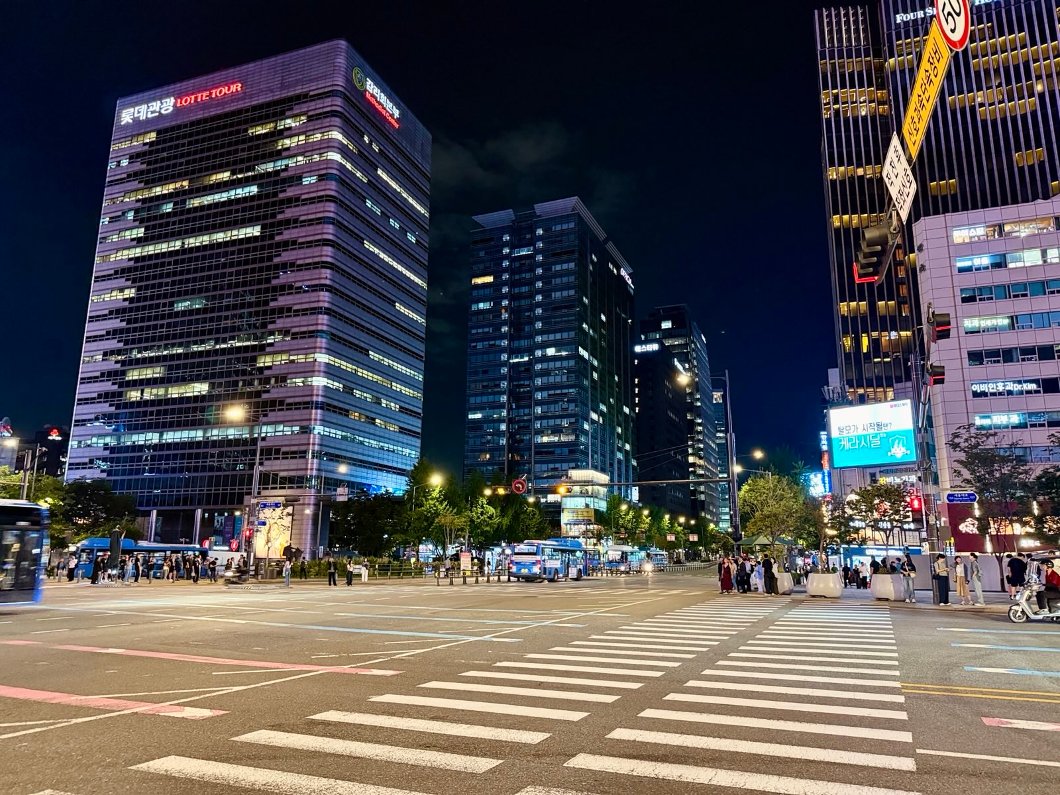
South Korea Uses Artificial Intelligence as a Key Tool for Economic Transformation
10.10.2025 / 02:44 | Aktualizováno: 30.10.2025 / 02:47
In 2025, South Korea officially became a so-called “super-aged society,” a country where more than 20% of the population is over the age of 65. This demographic shift, accompanied by a record-low fertility rate (currently 0.75 children per woman), poses a major challenge to maintaining economic vitality. The government is responding with an extensive technological transformation centered on artificial intelligence (AI), not only as a tool for productivity but also as a systemic solution to structural problems
Artificial Intelligence as a Priority
The Korean government has significantly strengthened its institutional framework for AI development. The Ministry of Science and ICT has been reorganized and elevated to an agency with expanded powers. The ministry’s 2026 budget amounts to KRW 23.7 trillion (approx. CZK 415 billion), of which KRW 10.1 trillion (approx. CZK 177 billion) is allocated directly to AI — triple the amount from 2025 and accounting for more than 1.4% of the national budget.
For comparison: the U.S. allocates 1.2% of its national budget to AI, Germany between 0.25–0.34%, and the Czech Republic less than 0.02%. Korea thus regards AI as a key national priority. President Lee Jae-myung has called AI a “game-changer” and declared his ambition for Korea to become the world’s third AI powerhouse alongside the U.S. and China. Under the K-AI Vision, he announced plans to create a national data cluster, develop specialized AI chips (NPUs), acquire 50,000 GPUs, and expand AI education starting from elementary schools. The government aims to act as a catalyst for private investment.
Legislative Framework and International Dimension
This strategic approach is reflected not only in the scale of investment but also in legislative measures. The AI Basic Act, adopted in January 2025, will take effect in 2026. It establishes rules for the safe, ethical, and transparent use of AI, including labeling requirements for generative AI outputs, risk assessment procedures, and user protection standards. Korea has thus joined the small group of countries with their own AI legislation, alongside the EU and the Czech Republic.
President Lee also addressed AI regulation at the UN General Assembly, warning that AI could be both a tool of prosperity and a potential threat. He called for the creation of a global framework for the responsible use of AI to prevent the emergence of a so-called “silicon curtain,” a new form of global inequality.
Practical Use of AI
In 2022, 4.3% of Korean companies used AI, mostly within the ICT sector. On an individual level, adoption is much higher; more than half of the adult population uses AI for work purposes, double the rate in the United States. The highest adoption rates are among young, educated men, while women and older workers face a higher level of exposure without sufficient complementarity, meaning they work in positions where AI is more likely to replace human labor than to complement it.
The structure of the labor market is changing; 50% of jobs are highly exposed to AI, and 27% of them are at risk due to low complementarity. The government therefore supports digital skills development, research and development, computing infrastructure, and domestic production of AI chips.
AI in Military Sector
South Korea is among the world’s most technologically advanced countries in military applications of AI. The technology is used in cyber defense, autonomous systems, intelligence data analysis, and combat simulation. Development takes place through cooperation between defense research institutions and technology companies. A major milestone was Exercise Freedom Shield 25 (March 10–20, 2025), during which Korea, in collaboration with the U.S., tested Generative Defense AI (GeDAI) for the first time. This technology, based on publicly available data, was deployed to support decision-making in complex operational environments.
Inspiration and Opportunities for Czechia
Korea’s approach to AI demonstrates how a state can use technology to address structural challenges across sectors. AI is integrated into strategic planning. For Czech companies, this presents opportunities for cooperation in areas where the Korean market still lacks localized or specialized solutions, such as industrial automation, medical technologies, or language tools for European markets.
Although the Korean market is complex and highly competitive, dominated by major players such as Naver, Kakao, Samsung Electronics, LG AI Research, SK Telecom, and KT Corp., opportunities remain in fields where Korean companies have not yet developed their own solutions. Czech firms can succeed by offering practical products, building strong partnerships, adapting to local requirements, and providing technologically mature solutions that meet Korea’s high standards for quality and reliability.
Vardan Khachatryan, Economic Diplomat, Embassy of the Czech Republic in Seoul




